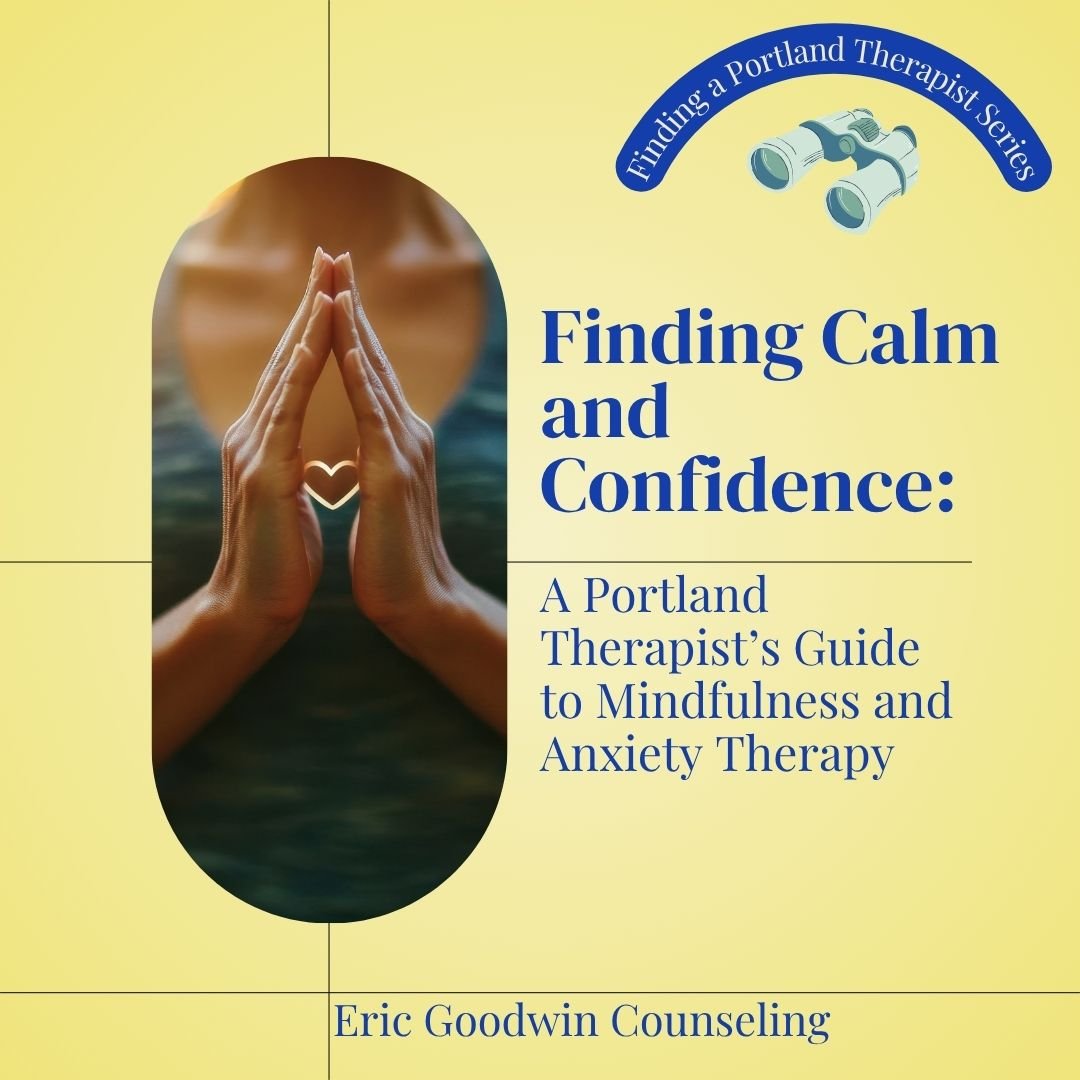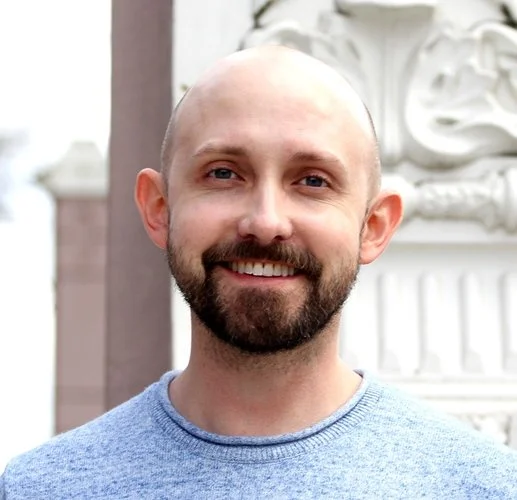Finding Calm and Confidence: A Portland Therapist’s Guide to Mindfulness and Anxiety Therapy
Portland’s community-focused culture and abundant spaces to connect with all types of natural beauty may seem like solid antidotes to anxiety. Whether it’s a mosey through Powell Butte Nature Park or starting the day at your neighborhood café, the city offers opportunities for connection and mindfulness. Yet, even in this seemingly ideal environment, the stressors and worries of day to day life can lead to an all-consuming feeling of anxiety, making it hard to truly enjoy life.
As a Portland therapist, I specialize in helping LGBTQ+ individuals and others navigate anxiety through mindful self-compassion. These practices can help you approach anxiety with curiosity and kindness, creating space for clarity and confidence. Let’s explore why anxiety feels so overwhelming and how applying the lens of mindful self-compassion in therapy can transform your relationship to it.
Why Does Anxiety Feel So Overwhelming?
Anxiety has a way of taking the wheel of your experiences, leaving you feeling stuck in a cycle of worry and self-doubt. And it’s not just in your head. Anxiety affects your body, your mind, and even the way you interact with others.
Have you ever felt like your thoughts were spinning faster than you could handle? Like each “what if” leads to another until even the smallest decisions feel impossible?
Imagine this scenario: You’re preparing to give a presentation at work. At first, you feel a little nervous (that’s normal). But soon, your thoughts start racing:
“What if I mess up?”
“Everyone will think I’m incompetent.”
Before you know it, your heart is pounding, your palms are sweaty, and you’re questioning everything you prepared. By the time you start, it’s not just nerves - you’re bracing for disaster.
For many in the LGBTQ+ community, anxiety can be compounded by societal pressures, internalized criticism, and lingering effects from Queerphobic-trauma or discrimination. These added layers make anxiety feel even more persistent and personal.
But here’s the good news: Anxiety doesn’t have to take the wheel. With helpful approaches and support, you can change this cycle and approach your experiences with greater confidence and calm.
How Mindfulness Can Transform Your Relationship with Anxiety
Mindfulness gives you the space to step back from anxious thoughts and observe them without judgment. Instead of getting caught up in “what ifs” or trying to push anxiety away (which often just leads to anxiety digging its heels in), mindfulness allows you to observe it for what it is—an experience, not a permanent state or truth.
For example, instead of thinking, “I’m failing because I feel anxious,” mindfulness helps you reframe: “I’m feeling anxious right now, and that’s okay. It’s part of being human.”
Mindfulness and self-compassion can be particularly transformative for LGBTQ+ individuals. It provides a way to navigate societal expectations and internalized stigma with greater self-acceptance. By observing anxious thoughts and feelings with curiosity rather than criticism, you can begin to break free from the patterns that keep you stuck.
A Simple Mindfulness Practice to Try
If you’re ready to explore how mindfulness can help with anxiety, this beginner-friendly journaling exercise is a great place to start. It combines mindfulness with self-compassion, helping you create space to understand and soothe anxious thoughts.
Mindful Journaling for Anxiety
Find a quiet space where you won’t be interrupted and set a timer for 5–10 minutes.
Write down your anxious thoughts as they come to mind (try not to edit or censor yourself. This is a space to let it all out).
Afterward, read through your entries and ask yourself:
“Are these thoughts facts or fears?”
“What would I say to a friend who was feeling this way?”
Take a moment to respond to your thoughts with mindful self-compassion. For example:
“It’s understandable and human to feel anxious about this. I’m doing my best, and I deserve kindness.”
This exercise helps you distance yourself from anxious thoughts, turning them from overwhelming fears into manageable experiences. When paired with therapy, journaling can help identify recurring themes in your anxiety, providing a foundation for meaningful exploration and growth.
Working with a Portland Therapist to Build Confidence and Calm
While mindfulness is a great starting point, therapy takes these practices to the next level by acknowledging and understanding the root causes of what leads to your experiences with anxiety. Therapy with a specialist in anxiety therapy in Portland helps you uncover the patterns contributing to your stress and build lasting resilience.
Understand the patterns that contribute to your anxiety.
Develop personalized strategies for managing anxious thoughts and emotions.
Build a stronger foundation of self-compassion and resilience.
For LGBTQ+ individuals, therapy offers a unique opportunity to process the challenges tied to identity and belonging in a supportive, affirming space. It’s a chance to rewrite the narrative of anxiety and self-doubt, creating room for growth and self-acceptance.
Ready to Embrace a Calmer Way of Being? Let’s Work Together
Eric Goodwin, Licensed Professional Counselor in Portland, offers mindfulness-based anxiety therapy that helps clients find lasting calm and build confidence—in person and online throughout Oregon.
Anxiety doesn’t have to define your life. By exploring mindfulness and self-compassion, you can create space for peace, clarity, and confidence.
As a Portland therapist, I specialize in helping LGBTQ+ individuals and others navigate anxiety with curiosity and care. Together, we’ll uncover the strategies that resonate with you, empowering you to build a more compassionate relationship with yourself.
If you’re searching for anxiety therapy in Portland, ways to develop mindfulness and self-compassion, or support from a Queer-affirming therapist, I’m here to help. Call (971) 533-5590 or click here to schedule your free 15-minute consultation. You deserve a space where your challenges are met with care and understanding. Together, we can create the peace you’ve been seeking.

